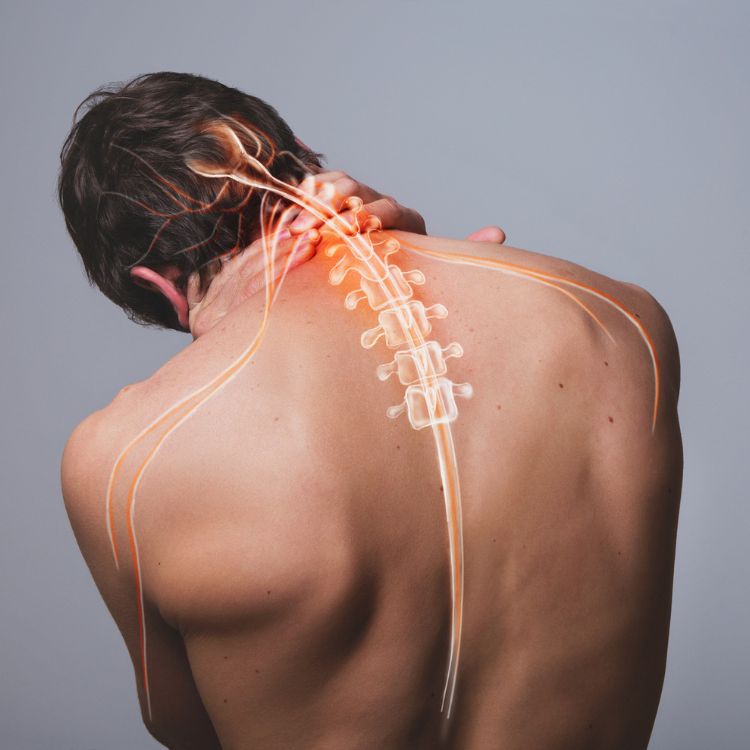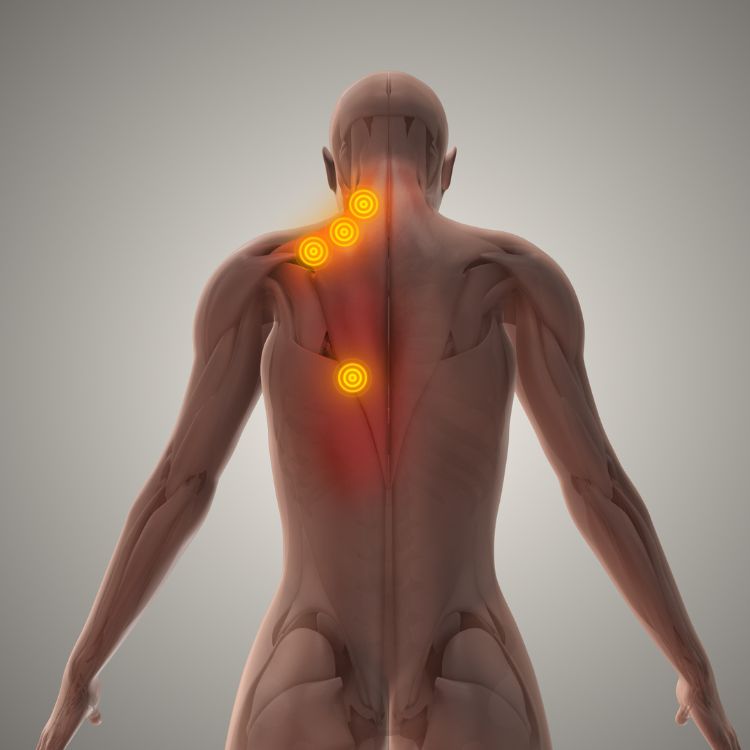What Causes Neck Pain?
Neck pain often stems from damage or irritation to the muscles, bones, ligaments, tendons, or nerves in the cervical spine (the portion of your spine that supports your neck). Some of the most common causes include:
- Muscle strains
- Herniated discs
- Whiplash injuries
- Osteoarthritis
- Bone spurs
- Osteoporosis
- Muscle tension from stress
- Rheumatoid arthritis
- Cervical spinal stenosis (narrowing of the spinal canal)
- Degenerative disc disease
- Cervical radiculopathy (pinched nerves)
Cervical radiculopathy happens when a nerve in your neck becomes compressed or irritated, often due to a herniated disc or bone spur. This can cause symptoms like numbness, tingling, weakness, or a burning sensation that radiates into the arms and hands.
How Is Neck Pain Diagnosed?
Getting an accurate diagnosis is the first step toward lasting relief. During your visit, your Alabama Anesthesiology & Pain Consultants provider will perform a physical exam to assess your neck’s mobility, strength, and any areas of tenderness.
They’ll review your medical history and current symptoms, and may recommend imaging studies like X-rays, a CT scan, or an MRI to get a closer look at the structures in your neck. If cervical radiculopathy is suspected, specialized tests like electromyography (EMG) and nerve conduction velocity (NCV) studies may be ordered to evaluate nerve function.
How Is Neck Pain Treated?
Protecting your neck starts with small changes, like improving your posture and avoiding repetitive movements that strain your neck. Over-the-counter pain relievers, anti-inflammatory medications, and applying heat or ice packs can offer temporary relief.
If your neck pain is persistent or severe, Alabama Anesthesiology & Pain Consultants offers a full range of advanced treatments, including:
- Physical therapy
- Prescription medications
- Trigger point injections
- Platelet-rich plasma (PRP) therapy
- Epidural steroid injections
- Facet joint injections
- Radiofrequency ablation
- Spinal cord stimulation
In most cases, a personalized, minimally invasive treatment plan is highly effective at reducing or eliminating neck pain. For patients with more complex or stubborn cases, procedures like radiofrequency ablation or spinal cord stimulation provide long-term solutions without the need for traditional surgery.





